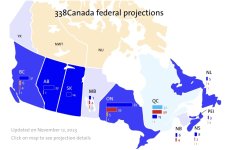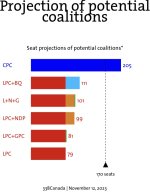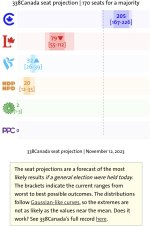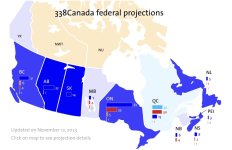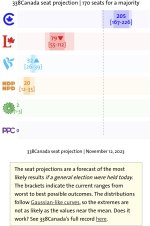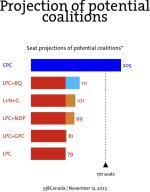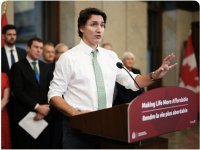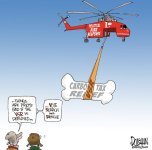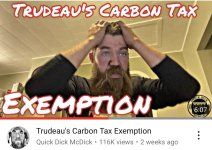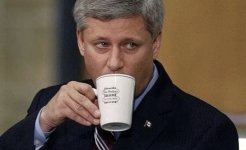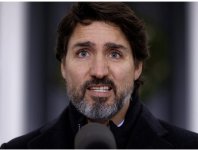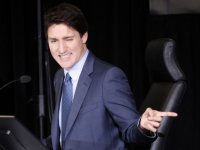By now, the verdict is near-unanimous: the federal carbon tax is a farce. The exemption for heating oil in Atlantic Canada put a lie to the entire project: faced with declining fortunes in the East, Prime Minister Justin Trudeau blinked and chose votes over virtue. Cue the outstretched hands from the rest of the country: what about propane? what about natural gas? what about everyone who heats their house east of the Quebec-New Brunswick border?
View attachment 20001
And now, what about farmers? They use a lot of natural gas and propane for irrigation, drying grain, preparing feed, and heating and cooling barns and greenhouses. They already get a tax exemption if they use gasoline and diesel for these tasks.
Hence Bill C-234, a private member’s bill introduced by Conservative MP Ben Lobb, which would level the playing field by exempting all farmers from the carbon tax regardless of the type of fuel consumed.
View attachment 20002
Bill C-234 passed the House of Commons in March, mostly thanks to opposition support, and trundled off to the Senate, where it passed first and second reading earlier this month. Then yesterday, bam! it got stuck in third reading, the last hurdle it faces before getting Royal Assent and becoming law, all thanks to
some procedural sleight of hand from a few supposedly “independent” senators.
It’s not about applying equal treatment to farmers, or helping Canadians when they need it most, but clinging to a legacy project

apple.news
First, Sen. Lucie Moncion tabled an amendment to remove the potential extension of the tax exemptions beyond an established sunset period. This amendment mirrored one the Senate had already rejected earlier in the week, and came just days after
senators rejected a committee report recommending to remove all but grain drying from the bill. Shortly after Moncion tabled her amendment, Sen. Bernadette Clement moved closure of debate, adjourning the matter until Nov. 21, despite the fact that Senators were already standing to debate the change.
View attachment 20003
That’s out of order, and
Conservative Senators Don Plett and Leo Housakos cried foul, but to no avail. Conservative leader
Pierre Poilievre then picked up the mantle in the House of Commons, calling for a “massive pressure campaign” to push the governing Liberals to help pass the bill, which is supported by groups including the Grain Growers of Canada and the Canadian Pork Council.
First, Sen. Lucie Moncion tabled an amendment to remove the potential extension of the tax exemptions beyond an established sunset period. This amendment mirrored one the Senate had already rejected earlier in the week, and came just days after
senators rejected a committee report recommending to remove all but grain drying from the bill. Shortly after Moncion tabled her amendment, Sen. Bernadette Clement moved closure of debate, adjourning the matter until Nov. 21, despite the fact that Senators were already standing to debate the change.
View attachment 20004That’s out of order, and
Conservative Senators Don Plett and Leo Housakos cried foul, but to no avail. Conservative leader
Pierre Poilievre then picked up the mantle in the House of Commons, calling for a “massive pressure campaign” to push the governing Liberals to help pass the bill, which is supported by groups including the Grain Growers of Canada and the Canadian Pork Council.
View attachment 20005
But that isn’t likely: both the prime minister and Environment Minister Steven Guilbeault have ruled out future carve-outs. “As long as I’m the environment minister, there will be no more exemptions to carbon pricing,”
Guilbeault declared last week. (Hmm. If Bill C-234 does pass, will Guilbeault do like Sheila Copps did over the GST, and resign?)
View attachment 20006
The hypocrisy is galling. This government is swift to call grocery CEOs on the carpet about high food prices, but when it comes to taking real action — like cutting the costs borne by farmers to produce food — it’s crickets. That’s because doing so would punch another hole in their precious carbon tax, and they know that if the carbon tax collapses, so does the whole enterprise. And quite possibly, Trudeau’s leadership.
View attachment 20007
The demise of this signature policy is a symptom of a greater malaise: the crumbling of Liberal fortunes, and specifically, those of the prime minister, as his virtue-signaling agenda confronts harsh economic times and the failure of woke politics. Canadians struggling to pay the rent have no money for extra taxes, and no interest in being lectured. They also don’t appreciate the divide-and-conquer approach to national politics, whereby one region or sector gets preferential treatment and others are literally left in the cold.
View attachment 20008
Instead, Trudeau’s intransigence on the carbon tax speaks volumes about his government’s priorities: it’s not about applying equal treatment to farmers, or helping Canadians when they need it most, but clinging to a legacy project. Without this tax, he will have failed to leave an enduring mark in the future of the country. In other words, it’s all about him.
View attachment 20009
Prediction: if the carbon tax goes down, Trudeau will not run in the next election. If that vote is a referendum on his leadership, he won’t run a campaign where he has no leadership to run on.
View attachment 20010
